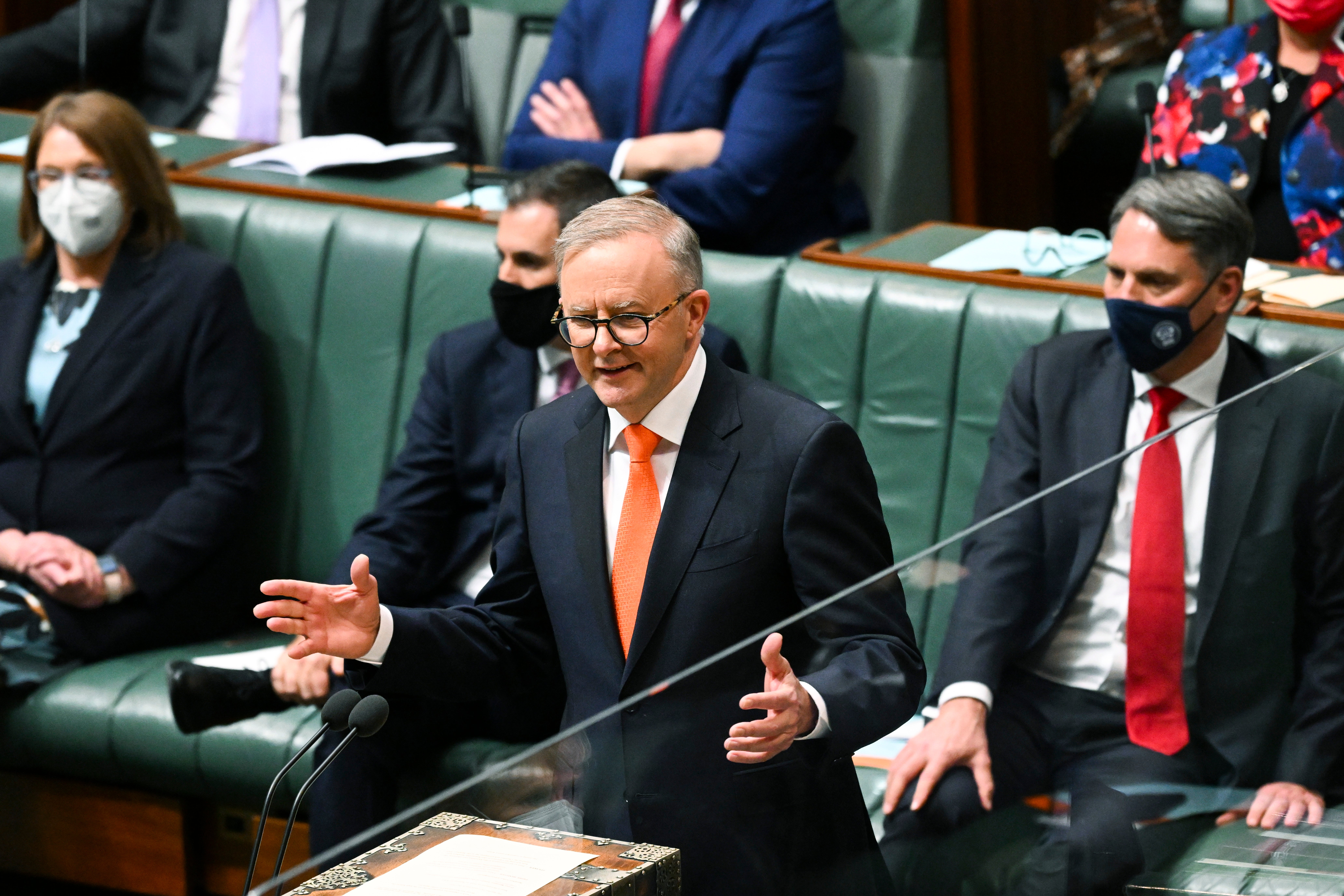Australian leader wants legislated carbon reduction target
Australia’s Parliament has sat for the first time since May elections with the new prime minister determined to have a greenhouse gas reduction target enshrined in law

Your support helps us to tell the story
From reproductive rights to climate change to Big Tech, The Independent is on the ground when the story is developing. Whether it's investigating the financials of Elon Musk's pro-Trump PAC or producing our latest documentary, 'The A Word', which shines a light on the American women fighting for reproductive rights, we know how important it is to parse out the facts from the messaging.
At such a critical moment in US history, we need reporters on the ground. Your donation allows us to keep sending journalists to speak to both sides of the story.
The Independent is trusted by Americans across the entire political spectrum. And unlike many other quality news outlets, we choose not to lock Americans out of our reporting and analysis with paywalls. We believe quality journalism should be available to everyone, paid for by those who can afford it.
Your support makes all the difference.Australia’s Parliament sat on Tuesday for the first time since May elections with the new prime minister determined to have a greenhouse gas reduction target enshrined in law.
Legislation that would force Australia to reduce its emissions by 43% below 2005 levels by the end of the decade will be introduced Wednesday into the House of Representatives.
While Prime Minster Anthony Albanese’s center-left Labor Party holds a narrow majority in the House, it will need the support of senators from outside government ranks to get the bill through the upper chamber.
If Labor can persuade all 12 senators from the minor Greens party to support the bill, it will only need one more senator from the remaining six available to achieve a majority.
The Greens want Australia to slash its emissions by 75% by 2030.
The conservative coalition that ruled for nine years until the May 21 election won’t budget from its 2015 Paris commitment to reduce emissions by between 26% and 28%.
Albanese said voters and business groups had endorsed the 43% target.
“Our policy is well thought through,” Albanese said. “It was announced, it was campaigned upon, indeed, it received a mandate.”
Labor has agreed to some of the Greens’ demands including that the bill would state that any target was a floor, not a ceiling and that there would be no reduction in the government‘s ambition.
Greens leader Adam Bandt said his party needed more concessions and negotiations would continue.
Bandt said the government must stop approving new coal and gas projects and adopt a more ambitious target than 43%.
“We have been very concerned that the bill might put that weak target into law in a way that would put a handbrake on future governments that might be willing to act according to the science,” Bandt said.
The new government has already officially notified the United Nations of the 43% target.
It wants the target enshrined in law in case a future administration attempts to reduce the target.
Six new Greens lawmakers were sworn in on Tuesday, three to the House and three to the Senate. Bandt described the election result as the party’s best ever.
The major parties both lost seats to candidates who promised more action on climate change.
The conservative Liberal Party lost six House seats that were considered some of their safest to so-called teal independents: a greener shade than the party’s traditional blue color.
The number of lawmakers in the House unaligned to major parties has burgeoned from seven in the last Parliament to 16 in the new Parliament,
It is the largest number of unaligned lawmakers in the 151-seat House since the Liberal Party was formed in 1944.
Some observers say the trend suggests the years of majority government in Australia are numbered.
Australia has only had one minority government since World War II. A Labor minority government was elected in 2010 and lasted for a single three-year term.
Ian McAllister, an Australian National University political scientist who surveys voters after elections, said a substantial number wanted more action on climate change than the major parties were prepared to take.
“We asked about climate change. These days it’s about the second or third most important issue, whereas 10 or 15 years ago it was maybe fifth or sixth and it's very much associated with younger voters,” McAllister said.